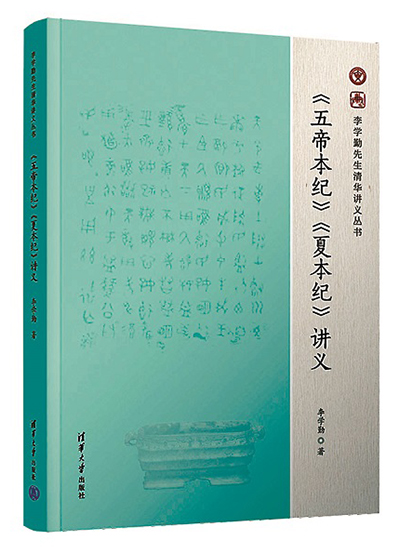Legends significant to history

Lecture Notes of Wudi Benji and Xia Benji
Lecture Notes of Wudi Benji and Xia Benji, by Li Xueqin, a famous historian, paleographer, and archaeologist in China, is composed of his lecture notes on “Wudi Benji” [The Chronicles of the Five Emperors] and “Xia Benji” [The Chronicles of the Xia Dynasty], the first two chapters of Shiji [Records of the Grand Historian], explaining the magnificent ancient history spanning thousands of years from the Five Emperors to the collapse of the Xia Dynasty (c. 21th –16th century BCE).
Li disassembled and interpreted the texts of Shiji, but was not merely confined by them. He integrated into his course the knowledge of other contemporary historical works, the tradition of early historiography in China, and the similarities and differences between Chinese and Western ancient history.
The legends of the Yan Emperor and the Yellow Emperor, and the rich content related to the Yellow Emperor culture, concerns the tradition of the Chinese nation, the national cohesion of overseas Chinese, and the rejuvenation of the Chinese nation. However, scholars have disagreements on how to understand these legends. Li also has his own understanding.
Sima Qian wrote Wudi Benji of Shiji according to ancient classical documents with a very rigorous attitude. Since Sima Qian wrote history seriously, why are there so many myths and legends in Shiji? In this respect, Li agrees with Wang Guowei’s opinion, believing that the study of early ancient history is a tough task, given the inevitable mix of history and myths and legends. Early ancient history contains both mythical components and historical facts, that is to say, all legends are supposed to incorporate certain backgrounds of historical facts.
This is not only true of China, but also of all countries around the world. For example, Heinrich Schliemann, a pioneer of European archaeology, who had a childhood fascination with the Homeric epics that were considered myths at the time, believed that there must be something real about the Trojan War. As such, he turned to archaeology immediately after his success in business and discovered the ancient city of Troy, which caused a global sensation.
By analyzing the relationship between legends and historical facts, Li noted the significance of the Yellow Emperor legends. Like the origin of other ancient civilizations in the world, they also have a background combining mythological factors. Possessing both myths and historical facts, they cannot be simply written off. Li further argued that legends are an integral part of history, and an indispensable section. This insight greatly enhanced the significance of ancient historical legends such as the Yan and Yellow emperors to the study of ancient civilization.
Liu Guozhong is a professor from the Research and Conservation Center for Unearthed Texts at Tsinghua University.
Edited by YANG LANLAN
